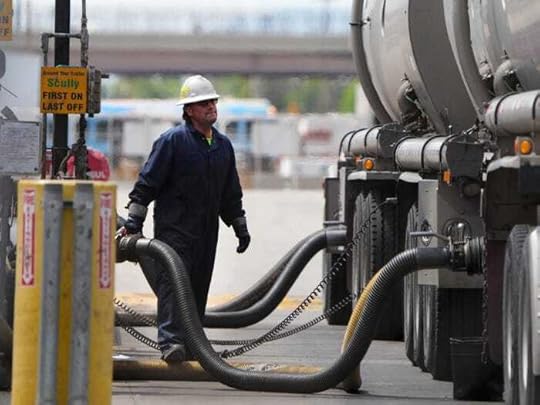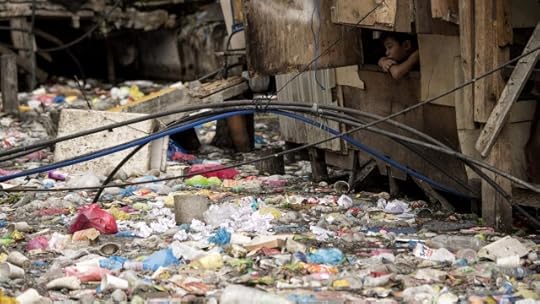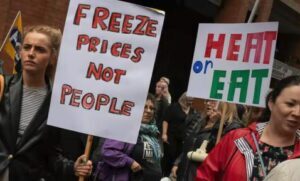Steve Bull's Blog, page 179
October 13, 2022
NOPEC Bill Won’t Bring Oil Prices Down
“Nobody f*cks with a Biden,” said the U.S. president, and the oil ministers of the member countries of the Organization of the Petroleum Exporting Countries (OPEC+) replied, “Hold my beer.” OPEC+ then proceeded to approve production cuts of 2 million barrels per day, despite a full court press by the administration in the weeks leading up to the decision, and raised the price of oil for the U.S., lowered it for Europe, and left it unchanged for Asia. According to National Security Advisor Jake Sullivan, “the President is disappointed by the shortsighted decision by OPEC+ to cut production quotas” and “the Biden Administration will also consult with Congress on additional tools and authorities to reduce OPEC+’s control over energy prices,” neglecting to mention that Biden administration decisions to cancel the Keystone XL pipeline and to stop issuing new oil and gas leases on public lands gave OPEC+ the upper hand.
Apparently, a fist bump only gets you so far.
There followed a lot of “how dare they!” by the great and good, but OPEC+ was having none of it. The day before the announcement, the Saudi energy minister dressed down a Reuters reporter for shoddy work by his colleague who claimed that Russia and Saudi Arabia (the Kingdom) conspired to price oil at $100 per barrel, and later explained OPEC+ was being proactive as the West is attacking inflation with higher interest rates which, in turn, may cause a recession and drive down oil demand (and price)…
…click on the above link to read the rest of the article…
Crude oil could hit $125 a barrel as Russia’s reaction to a US-led price cap threatens to squeeze supply, UBS says
 Oil prices are ticking upwards again after falling for the past three to four months. George Frey/Getty ImagesUBS expects oil will hit $125 a barrel if Russia reacts to a planned G7 oil price cap as promised.Russia has said it will cut its exports if the US-led cap comes in, which would tighten crude supply.“As we get further draws, you’re going to see prices going up. That simple,” Dominic Schnider told CNBC.
Oil prices are ticking upwards again after falling for the past three to four months. George Frey/Getty ImagesUBS expects oil will hit $125 a barrel if Russia reacts to a planned G7 oil price cap as promised.Russia has said it will cut its exports if the US-led cap comes in, which would tighten crude supply.“As we get further draws, you’re going to see prices going up. That simple,” Dominic Schnider told CNBC.Crude oil could hit $125 a barrel as Russia’s response to a US-led price cap plan threatens to tighten the global market even further, a top UBS commodities strategist has said.
Moscow has said it’s prepared to cut its oil output if the G7 nations carry through with the price cap, warning the measure will end up primarily hurting those behind the plan.
Dominic Schnider, head of commodities at UBS Global Wealth Management, said that could pull another 1 million barrels a day at a time when the oil market is already facing a supply squeeze from the OPEC+ decision to slash its production targets.
“The Russians were clear: ‘If you force us to accept the price cap, we’re simply not going to deliver crude to you,” Schnider said in a Tuesday interview with CNBC,
“And so I think that kind of situation means, maybe, from a global supply perspective, there’s an additional 1 million barrels at risk here.
“As we get further draws, you’re going to see prices going up. That simple. And we’re looking at $110-$125, that’s for us our point of gravity when it comes to crude oil,” he added.
…click on the above link to read the rest of the article…
The Era Of Cheap Food And Cheap Gasoline Is Over
 All of our lifestyles are about to change in a major way, but the vast majority of the population still does not understand what is coming. Throughout our entire lives, we have always been able to depend on a couple of things. There would always be cheap gasoline to fuel our vehicles and there would always be mountains of cheap food at the grocery store. No matter who was in the White House and no matter what else was going on in the world, those two things always remained the same. Unfortunately, those days are now over and they aren’t coming back.
All of our lifestyles are about to change in a major way, but the vast majority of the population still does not understand what is coming. Throughout our entire lives, we have always been able to depend on a couple of things. There would always be cheap gasoline to fuel our vehicles and there would always be mountains of cheap food at the grocery store. No matter who was in the White House and no matter what else was going on in the world, those two things always remained the same. Unfortunately, those days are now over and they aren’t coming back.
We have entered the greatest energy crisis that any of us have ever experienced, and it isn’t going to go away any time soon.
So you might as well get used to high gas prices. Earlier this month, brand new all-time record highs were set all over southern California…
Los Angeles-Long Beach – $6.46 (Record high)Orange County – $6.42 (Record high Saturday)Ventura County – $6.40Riverside County – $6.33 (Record high)San Bernardino County $6.32But that isn’t the real problem.
The real problem is with natural gas.
Thanks to the war in Ukraine, supplies of natural gas in Europe have become extremely tight, and this has pushed prices into the stratosphere.
Needless to say, this is going to greatly affect food productions in the months ahead. According to Bloomberg, over two-thirds of all fertilizer production capacity in Europe has already been shut down due to soaring natural gas costs…
Europe’s fertilizer crunch is deepening with more than two-thirds of production capacity halted by soaring gas costs, threatening farmers and consumers far beyond the region’s borders.
This is an absolutely massive story, but hardly anyone in the United States is covering it.
…click on the above link to read the rest of the article…
October 12, 2022
Want to save the oceans? Stop recycling plastic
If you put your plastic in your recycling bin, there’s a decent chance it will end up in the seas off east Asia. If you put it in landfill, it’s going nowhere
 Plastic in a river in Manila, the Philippines, where a significant amount of Western ‘recycling’ plastic is sent (Photo: Noel Celis/AFP/Getty)
Plastic in a river in Manila, the Philippines, where a significant amount of Western ‘recycling’ plastic is sent (Photo: Noel Celis/AFP/Getty)Recycling plastic is a bad idea and, until we can be sure of where it’s going, we should stop doing it. We should put plastic in the landfill, instead.
This sounds like a really spicy hot take, but it’s not. I think it is pretty much accepted among people who study these things. The oceans are full of plastic, and that’s bad – but none of the plastic in the oceans comes from a British landfill. It almost all comes from developing-world countries, and by recycling we make the problem worse.
About 0.05 per cent of plastic waste in the UK is “mismanaged” – that is, dropped as litter or dumped into the environment, or left in open landfill. By contrast, in India, that figure is over 20 per cent – 400 times higher. China is comparable, at about 19 per cent.
In the Philippines, that figure is about 6.5 per cent, still more than 100 times the UK level but not quite as dramatic. But the Philippines is a collection of small islands, so plastic litter easily reaches small rivers there and ends up in the sea. Malaysia, similarly, has less of a problem with mismanaged waste, but large percentages of what is mismanaged ends up in the sea. So the average bit of plastic in one of those countries is pretty likely to end up in the sea.
…click on the above link to read the rest of the article…
The French Energy Sobriety Plan

Preface. Below is the announcement of the French Energy Sobriety Plan by Prime Minister Borne. The energy crisis is coming to all nations, and we should all be implementing their action plan (and family planning, birth control, abortion, limited immigration).
It’s hard for me to imagine a U.S. politician delivering this speech, though it will have to happen when fracked oil declines at 80% a year within 5-10 years. Though if fascist republicans are in power, they are more likely to “ration” by price, blame the Middle east, and start a war. Or blame Democrats and start a civil war. If that sounds extreme, please read some of the books here. Democrats are more likely to give a similar speech, very reluctantly, since Jimmy Carter wasn’t re-elected partly due to a similar one, known as his “malaise” speech (here).
After the speech I summarize the 50 pages of the French energy sobriety plan. What a great title. A good one for Richard Heinberg if he writes a sequel to “The Party’s Over”.
***
French energy sobriety announcement by Mrs Élisabeth Borne, French Prime Minister, on the goal of reducing energy consumption by 10% in two years on October 6, 2022.
Seven months ago, by brutally attacking Ukraine, Russia changed the world order. The strategic upheavals are superimposed by an energy crisis. Russia has chosen to blackmail its gas, provoking, in Europe, the risk of a shortage for this winter and a surge in energy prices. Faced with this, some are proposing to submit to Russia, accept its terms and abandon Ukraine. To listen to them would be to turn your back on a member of the European family and deny our values. It’s not an option. We will continue to support Ukraine. Continue to pressure Russia. Take action and give us the means to get through this winter in the best conditions.
…click on the above link to read the rest of the article…
Germans told to stop whining, wear 2 sweaters and have candles and flashlights ready in case of blackouts this winter
 Wolfgang Schäuble, former president of the German parliament, told Bild-TV that people should wear two sweaters this winter amid the energy crisis. Sean Gallup/Getty ImagesGerman politician Wolfgang Schäuble said on Bild-TV people should stop whining in the energy crisis.He told Germans to wear two sweaters in cold temperatures and have candles ready for blackouts.Germany and the rest of Europe face high energy bills as Russia chokes gas supply to the continent.
Wolfgang Schäuble, former president of the German parliament, told Bild-TV that people should wear two sweaters this winter amid the energy crisis. Sean Gallup/Getty ImagesGerman politician Wolfgang Schäuble said on Bild-TV people should stop whining in the energy crisis.He told Germans to wear two sweaters in cold temperatures and have candles ready for blackouts.Germany and the rest of Europe face high energy bills as Russia chokes gas supply to the continent.Germans should stop whining and be prepared with sweaters and candles this winter in case of blackouts amid the energy crisis, according to politician Wolfgang Schäuble.
In an interview on Tuesday with Bild-TV, the former finance minister and president of the German government said Germans should “just put on a sweater, or maybe a second sweater” in the event of a freezing-cold winter.
“You don’t have to whine about it, you have to recognize that a lot of things can’t be taken for granted,” he told the news channel.
European leaders have raised concerns about the possibility of power cuts this winter because of the squeeze in energy supplies. “That’s why you should always have a few candles, matches and a flashlight at home,” Schäuble told Bild-TV.
The 80-year-old also warned Germans not to assume the government could solve financial problems such as soaring inflation and energy costs.
“If we suggest to people that everything is unlimited, we are overexploiting. Then people get the impression that the state can do everything – that is not sustainable,” Schäuble told Bild-TV.
Russia continues to hold back natural gas supplies to Europe after the West imposed sanctions on Moscow for invading Ukraine. As a result of the shortages, energy prices have sky-rocketed, leaving some people struggling to afford food and other basic items.
…click on the above link to read the rest of the article…
Everything’s Fixed–Except What’s Broken
Everything’s fixed except what’s no longer profitable to plunder. Underfunded, ignored, mismanaged by incompetents, it breaks.
Everything’s fixed–except what’s broken. Hmm. Maybe we need to read that again.
Everything’s fixed means it’s been “fixed” like a game or match has been fixed–rigged to benefit insiders while the unwary onlookers and punters have been led to believe that it’s “fair and open.” That con job is the critical cover to cloak the fix/rigging.
If a market or regulatory system can’t be rigged to benefit insiders, then it’s broken because if it isn’t profitable for insiders, it’s neglected until it breaks.
It’s rather ironic, isn’t it? If you want a system to semi-function as advertised, it has be rigged to benefit insiders, as only then do insiders and major players devote enough attention and resources to keep it stumbling along, much as an organism is kept alive so parasites can continue feasting on it.
These zombie-systems rigged to benefit insiders only serve the public in a cursory, minimal-effort fashion. These systems excel at recruiting naive idealists who actually believe in the purported purpose of the organization: public service, education, quality products and services, etc.
These idealists soon lose their naivete as the learn that all that “serve the public” rah-rah is a PR facade to cover the expert pillage by insiders.
You, fine idealist, can be an adjunct for life here at this great university, earning $35,000 a year without tenure, job security, pension or benefits, while we insiders earn $350,000 as associate deans of diversity and other cushy insider gigs that have nothing to do with what students actually take away after they’ve been bled dry via student loans.
…click on the above link to read the rest of the article…
The Year in Which I Grow Our Food Pt. 4
How Much Food Can You Fit?
 It’s a long article. I’m trying to distract you with cute Corgi pictures.
It’s a long article. I’m trying to distract you with cute Corgi pictures.A Word on Self-Sufficiency
Let’s talk about the big question of the year: “How much do I grow to feed my family for the year?” It gets asked, and then for some reason that question leads to the talk and belief in self-sufficiency, and then “self-sufficiency” becomes a buzz word and gets batted around all over the place, so let me clear the air on that.
Here’s the thing — and sorry — we normal, everyday people with everyday yards CAN’T grow enough to not need food from another source, and you can’t grow everything you need, either. I’m not even sure that people with large acreages can do it. I doubt it. It would take a huge investment and a ginormous skill set.
For us mere mortals, either we don’t have the land for it, we don’t have the skills for it, we’re not in the right area to grow something, or we don’t have the money for it (or all of the above). And some of these things apply to people with large acreages as well.
Let’s just think about it for a minute. Can you grow:
Sugar? Cocoa? Coffee? Tea? Enough of anything to press it for cooking oil? Or enough animals to provide you with lard or butter to use in lieu of cooking oils? Can you grow enough wheat or barley or oats (or all three) to feed your family on TOP of all the other things? Can you grow enough wheat or barley or oats or corn to feed your livestock, if you have it?
…click on the above link to read the rest of the article…
French Gas Rationing Begins As Refinery Strikes Worsen After Government Calls Back Essential Workers
France said on Tuesday that it would “requisition” (i.e. force) essential workers to staff Exxon’s French oil depot, and threatened to do the same for Total’s French refineries if talks failed to progress. But workers at Total’s Donges refinery decided on Tuesday to strike beginning on Wednesday, the militant French union CGT said according to Reuters.
Le gouvernement décrète la #réquisition dans les #raffinerie bafouant ainsi un droit constitutionnel des travailleurs en lutte, nous appelons au #SoutienRaffineurs
— cgt exxonmobil (@cgtexxonmobil) October 11, 2022
As OilPrice notes, French Prime Minister Elisabeth Borne said on Tuesday that the government would start the callback process for ExxonMobil’s staff at its oil depots in the country after talks between the oil company and two unions, CGT and FO, stalled. The CFDT union, however, managed on Monday to reach an agreement with Exxon.
“Today some unions, despite the deal, wants to continue the strike action and blockades, we cannot accept that,” Borne told the lower house , according to Reuters, adding that she wants “this situation to change fast,” adding the government was prepared to take further action if needed.
“I have therefore asked the prefects, as permitted by law, to requisition the personnel needed for the functioning of the company’s depots,” she said, referring to Esso France.
“The orders are ready”, a source at the energy ministry said, adding that requisitions would only take place if the situation at the depots does not improve.
Those comments followed weekend comments by the country’s energy minister Agnes Pannier-Runacher that the government was “doing its utmost to restore the situation to normal as soon as possible.”
…click on the above link to read the rest of the article…
Cash For Fracking: UK Households May Receive Payouts For Allowing Fracking
UK households could soon receive cash payouts for allowing fracking in their neighborhoods, media reported on Monday.
The UK may have lifted its long-running ban on fracking last month, but its fracking industry still has one big hurdle that it must overcome: local opposition.
Fracking has been criticized for its reported ties to earthquakes and other environmental damage, and has fallen out of favor. The practice’s sullied reputation has led to its ban in several countries, including France, Germany, Spain, and until recently, the UK.
Despite its pariah status, fracking managed to make its way into the hearts and minds of Texans to eventually become the backing behind the United States’ rise to stardom within the global oil and gas industry. Fracking was able to make inroads in the U.S. shale patch precisely because locals benefited from the fracking activity by way of receiving money from the oil and gas taxes that the states collected, which then flowed into the areas that allowed it.
That those areas benefited greatly from the fracking dollars cannot be denied. Now Britain, too, is taking a page from the U.S. shale handbook: paying households £1,000 for allowing fracking in their areas. But the money will come directly from drillers rather than from industry tax revenue.
Drilling companies could soon go door to door in Britain, according to media reports on Monday, offering money in exchange for fracking support.
When the UK’s new Prime Minister Liz Truss removed the fracking ban last month, she did so with one caveat: it would only be allowed in communities that showed at least 50% support. Drillers must now gain half the residents over to the controversial practice in order to commence drilling.



